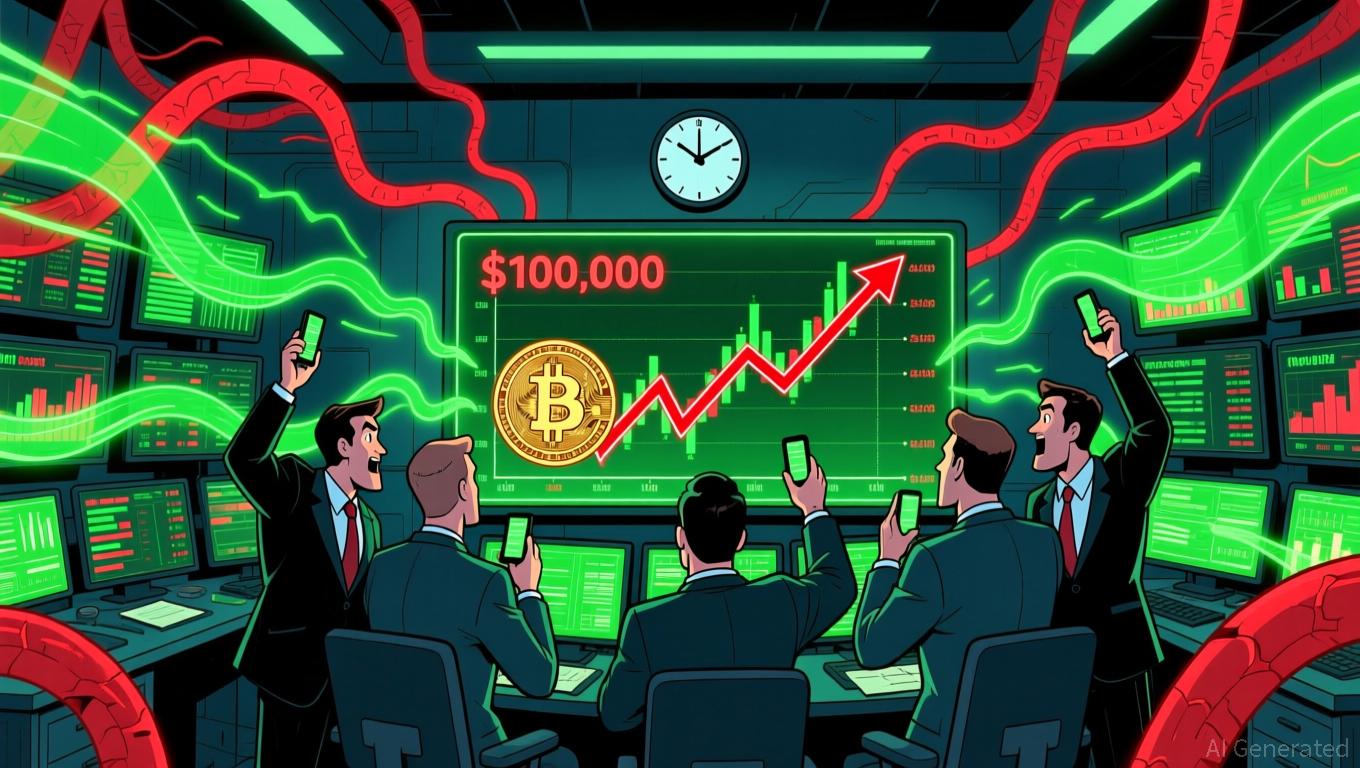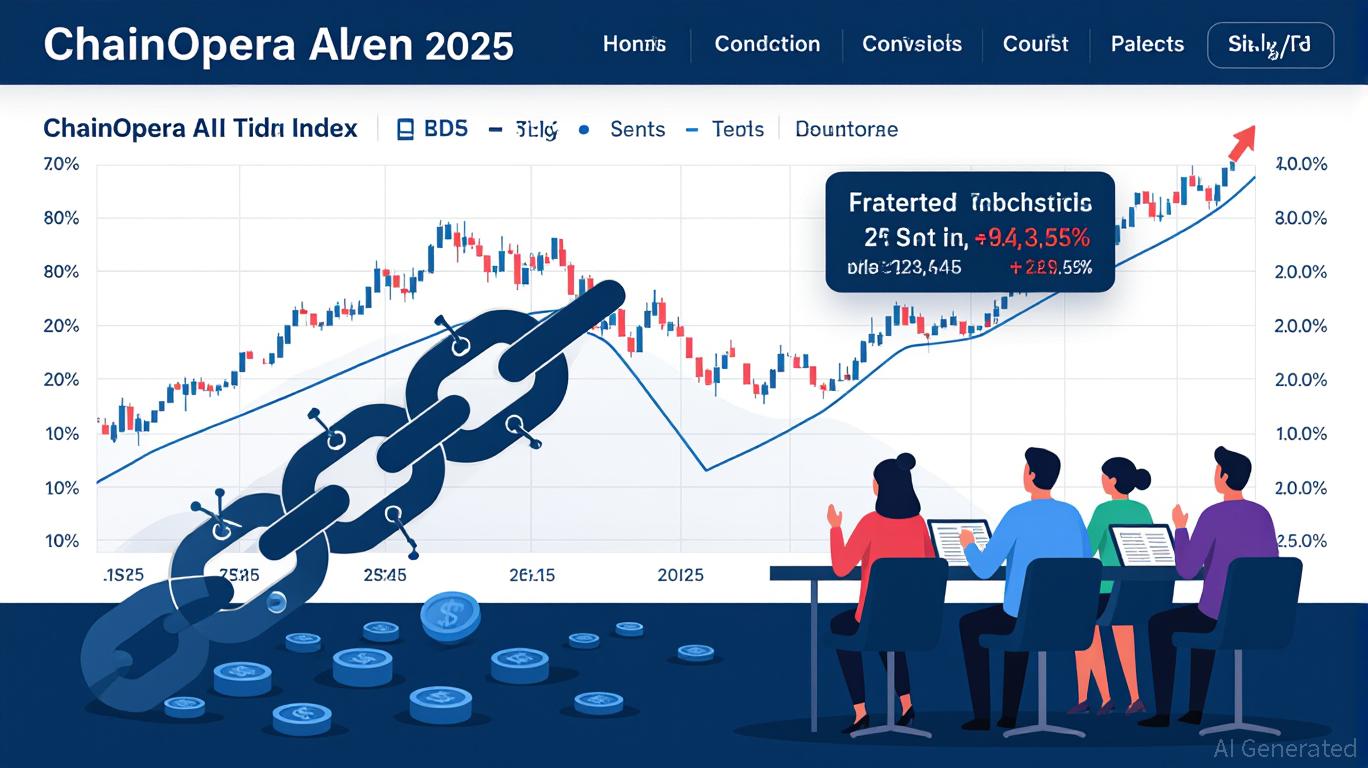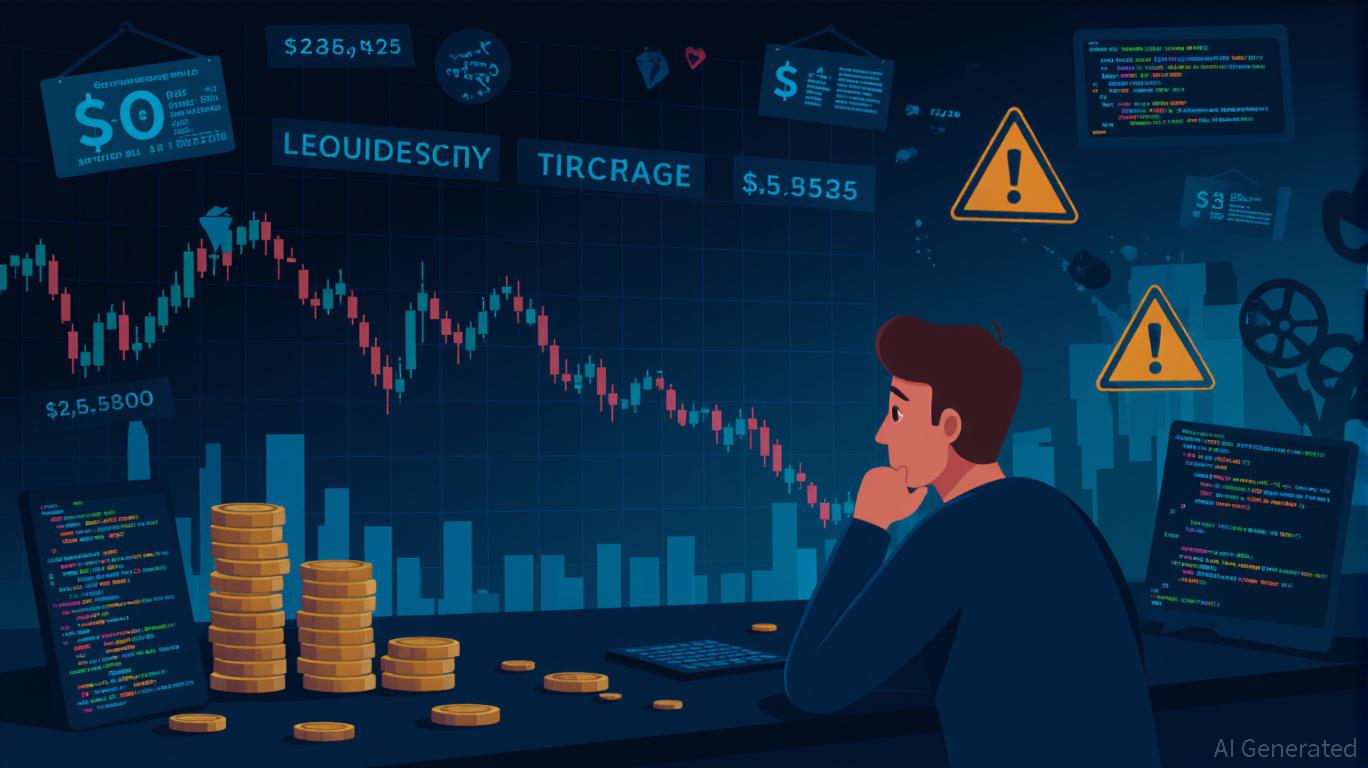Bitcoin Updates: Renewed Institutional Trust Drives Bitcoin ETFs to Achieve Initial Net Inflows
- U.S. Bitcoin ETFs saw first net inflow ($1.15M) as institutional demand and corporate purchases offset prior $1.22B outflows, signaling market stabilization. - Solana ETFs extended 9-day inflow streak to $575.93M, while Ethereum ETFs faced $46.6M outflows despite BlackRock's ETHA gaining $34.4M. - MicroStrategy bought 487 BTC ($102,557 each) and JPMorgan increased IBIT holdings to $343M, reflecting growing institutional confidence in crypto assets. - Analysts warn inflows may only temporarily counter wha
U.S.
The prior week was marked by heavy withdrawals, with all 12 U.S. Bitcoin ETFs seeing a combined $558.44 million outflow on Nov. 7 alone—the second-largest single-day withdrawal since these funds began, as

Ethereum (ETH) ETFs also saw net outflows, with $46.6245 million leaving on Nov. 7, led by Fidelity’s FETH, which recorded a $72.228 million withdrawal. On the other hand, BlackRock’s ETHA brought in $34.4326 million, marking its largest single-day inflow, as
Bitcoin’s ability to hold above $100,000 has been credited to both corporate treasury acquisitions and ETF inflows. MicroStrategy purchased an additional 487
Experts warn that while the latest inflows may indicate a period of consolidation, ongoing demand is essential for maintaining long-term price stability. “ETF inflows help cushion against large-scale selling, but a decrease could renew downward pressure,” Glassnode analysts commented, suggesting that Bitcoin’s current stability near $100,000 could represent a medium-term support level, as
Disclaimer: The content of this article solely reflects the author's opinion and does not represent the platform in any capacity. This article is not intended to serve as a reference for making investment decisions.
You may also like
H-1B Enforcement at Odds with Trump’s Stated Reliance on Overseas Labor
- Trump's administration launched 175 H-1B visa investigations targeting wage fraud and fake work sites to "protect American jobs." - The crackdown contradicts Trump's admission that U.S. industries face critical skills gaps requiring foreign labor in tech and manufacturing. - A South Korean EV battery plant worker raid and corporate critiques highlight tensions between immigration enforcement and labor shortages. - Proposed $2,000 tariff dividends risk inflation while H-1B restrictions test the viability

U.S. Debt Fluctuations Surge Amid AI-Driven Borrowing Growth and Fed Faces Fiscal Uncertainty
- U.S. Debt Volatility Index hits one-month high in November, reflecting market anxiety amid government shutdown resolution and fiscal risks. - AI infrastructure debt surges 112% to $25B in 2025, driven by tech giants’ $75B in bonds for GPU/cloud projects, raising overleveraging concerns. - Fed faces mixed signals: October job losses push December rate cut odds to 68%, while gold/silver rise 2-3% as investors seek safe havens amid fiscal/geopolitical risks. - Delayed economic data from shutdown complicates

ChainOpera AI Token Plunge: An Alert for Investors in AI-Based Cryptocurrencies
- ChainOpera AI Index's 54% 2025 collapse exposed systemic risks in AI-driven crypto assets, driven by governance failures, regulatory ambiguity, and technical vulnerabilities. - C3.ai's leadership turmoil and $116.8M loss triggered sell-offs, while the CLARITY Act's vague jurisdictional framework created legal gray areas for AI-based crypto projects. - Model Context Protocol vulnerabilities surged 270% in Q3 2025, highlighting inadequate governance models as 49% of high-severity AI risks remain undetected

Navigating the Dangers of New Cryptocurrency Tokens: Insights Gained from the COAI Token Fraud
- COAI token's 2025 collapse exposed systemic risks in algorithmic stablecoins, centralized governance, and fragmented regulatory frameworks. - xUSD/deUSD stablecoins lost dollar peg during liquidity crisis, while 87.9% token concentration enabled panic selling and manipulation. - Regulatory gaps pre-collapse allowed COAI to exploit loosely regulated markets, but post-crisis reforms like MiCA and GENIUS Act now demand stricter compliance. - Investor sentiment shifted toward transparency, with demand for re
